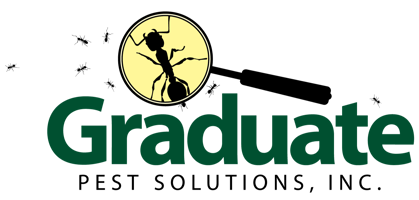Wasp nests can be a significant source of annoyance and fear for many individuals. However, beyond the annoyance they cause, these buzzing insects pose several risks that should not be taken lightly. Understanding the dangers associated with wasp nests is crucial for homeowners and property managers. In this blog post, we will delve into the reasons why wasp nests are more than just a nuisance and explore the potential hazards they present. By gaining insight into these dangers, you can take proactive steps to protect yourself, your loved ones, and your property from the threats posed by wasp nests.
The Aggressive Nature of Wasps
Wasps are known for their territorial behavior and aggressive nature when their space is threatened. Unlike bees, which typically sting once and then die, wasps can sting multiple times. When their nest is disturbed, they become defensive and release alarm pheromones to alert other members of the colony. This can lead to an increased risk of multiple wasp stings, which can be painful and cause severe allergic reactions in some individuals. For those who are allergic to wasps, a single sting can be life-threatening and may require immediate medical attention.
Allergic Reactions and Health Risks
For individuals with allergies, a wasp sting can be more than just a painful experience. An allergic reaction to a wasp sting can cause symptoms ranging from localized swelling and itching to more severe reactions such as difficulty breathing, dizziness, and even anaphylaxis. Anaphylaxis is a severe and potentially life-threatening allergic reaction that requires immediate medical intervention. It is essential for individuals with known allergies to wasp stings to carry appropriate medication, such as an EpiPen, and to seek medical help promptly in case of a sting.
Furthermore, even without an existing allergy, repeated stings or stings in sensitive areas of the body can lead to complications. Multiple stings can overwhelm the immune system, causing a condition called systemic toxicity. In rare cases, this can result in kidney damage, liver problems, or other systemic health issues. Therefore, it is crucial to address wasp nests promptly and professionally to minimize the risk of stings and associated health risks.
Property Damage and Structural Risks
Wasp nests can cause more than just physical harm to humans; they can also damage your property. Some wasp species, such as yellow jackets, build their nests in gaps within structures, including attics, wall cavities, and under eaves. As the colony grows, the nest can expand, causing structural damage to your home or building. Wasps can chew through wood and weaken the structural integrity of the affected areas, potentially leading to costly repairs.
In addition to structural risks, wasp nests can attract other pests. Nests that are abandoned or inactive may still contain materials that attract other insects, such as beetles or moths. These secondary pests can then infest your property, causing further damage and nuisance.
Professional Wasp Nest Removal
Given the risks associated with wasp nests, it is advisable to seek professional help for their safe and effective removal. Quality professional pest control services have the expertise, experience, and necessary protective gear to handle wasp nests efficiently. They can identify the species of wasps, locate the nest, and employ appropriate techniques to eliminate the problem without putting themselves or others at risk.
Reducing Risk
While wasp nests may seem like nothing more than a nuisance at first glance, it is essential to recognize the potential dangers they pose. From their aggressive behavior and the risk of allergic reactions to property damage and structural risks, wasp nests should be taken seriously. By understanding these dangers and seeking professional assistance when necessary, you can safeguard yourself, your loved ones, and your property from the potential hazards associated with these buzzing insects. Remember, prevention, early intervention, and professional expertise are key to mitigating the risks and ensuring a wasp-free environment.
YOU MAY ALSO LIKE
These related articles

